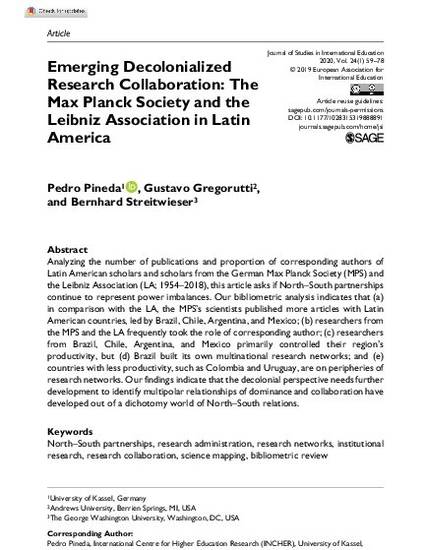
- North–South partnerships,
- research administration,
- research networks,
- institutional research,
- research collaboration,
- science mapping,
- bibliometric review
Analyzing the number of publications and proportion of corresponding authors of Latin American scholars and scholars from the German Max Planck Society (MPS) and the Leibniz Association (LA; 1954–2018), this article asks if North–South partnerships continue to represent power imbalances. Our bibliometric analysis indicates that (a) in comparison with the LA, the MPS’s scientists published more articles with Latin American countries, led by Brazil, Chile, Argentina, and Mexico; (b) researchers from the MPS and the LA frequently took the role of corresponding author; (c) researchers from Brazil, Chile, Argentina, and Mexico primarily controlled their region’s productivity, but (d) Brazil built its own multinational research networks; and (e) countries with less productivity, such as Colombia and Uruguay, are on peripheries of research networks. Our findings indicate that the decolonial perspective needs further development to identify multipolar relationships of dominance and collaboration have developed out of a dichotomy world of North–South relations.
Open Access License: CC BY
